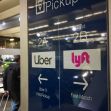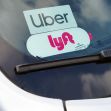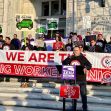The US Supreme Court justices declined to hear an appeal by Uber and Lyft, which are being sued by the California Labor Commission for committing wage theft and violating California labor laws. The justices did not share any comments on why they denied the ride-sharing platforms’ writ of certiorari. This latest failed gambit by the ride-hailing apps means the state’s case may yet be heard in court if the parties don’t eventually settle first.
In their request to be heard by the High Court, Uber and Lyft argued that the Federal Arbitration Act overrides California laws and prevents any workers who sign arbitration agreements from seeking money in court. The attorneys also alleged that the lawsuit represents California’s latest attempt to create a loophole” in the state labor laws.
The two mega-companies are accused of “misclassifying” their workers as independent contractors versus employees. In 2020, California Attorney General Rob Bonta and Labor Commissioner Lilia Garcia-Brower sued Lyft and Uber for withholding both back payments and minimum wage for workers.
The lawsuit was first brought against Lyft and Uber in September 2020, two months before California voters passed Proposition 22, which gave ride-hailing companies such as Lyft and Uber the right to classify drivers as independent contractors The state’s lawsuit, therefore, only applies to the period before December 15, 2020, when the drivers could ostensibly be properly classified as employees under the law as it then existed.
Court documents list the California Attorney General and City Attorneys of the cities of Los Angeles, San Diego, and San Francisco, as parties that jointly brought the action on “behalf of the People.”
The state’s complaint put forward that Lyft and Uber were “depriving them [ride-share and delivery drivers] of wages and benefits associated with employee status.” In the complaint, the People alleged that “the misclassification harms workers, competitors, and the public.” The complaint seeks injunctive relief, civil penalties, and restitution under the state’s Unfair Competition Law (UCL), codified in sections 17200-17210 of California’s Business & Professions Code. The complaint also seeks injunctive relief “under the statutory scheme established by Assembly Bill No. 5 (2019–2020 Reg. Sess.), specifically Labor Code section 2786, which authorizes such relief to prevent misclassification of employees as independent contractors.”
The trial court entered a preliminary injunction “prohibiting Uber and Lyft from misclassifying their drivers as independent contractors in violation of Assembly Bill 5.”
In court, Uber and Lyft attorneys argued that the suit was invalid because the two ride-hailing companies did not pay overtime and other types of benefits, and because their workers at the time signed arbitration agreements.
The California Appeals Court in September 2020 ruled that those arbitration deals are “irrelevant” to California’s authority in the matter. California Appeals Court Justice Jon Streeter said that Uber and Lyft’s signed arbitration agreements do not apply to the present lawsuit because it is not the workers who are suing the two giant firms, but instead the state.
In his opinion, Justice Streeter said, “The public officials who brought these actions do not derive their authority from individual drivers but from their independent statutory authority to bring civil enforcement actions.”
If Uber and Lyft do not reach a settlement, the firms could be required to pay back wages to “tens of thousands” of workers. For the past few years, the giant ride-hailing companies have appealed the case at every level. As of today, these appeals have all been denied.
The California Department of Industrial Relations released a statement about the case, including a list of the courts that denied the ride-hailing firms’ appeals.
“Judicial proceedings in the trial court were stayed during the pendency of Uber and Lyft’s ultimately unsuccessful effort to compel arbitration of various claims,” noted the Department. “Uber and Lyft made this motion in the trial court, and we argued against it.
The court ruled in our favor. Uber and Lyft then appealed that ruling. The Court of Appeal again ruled in our favor. Uber and Lyft then sought review from the California Supreme Court. The Court denied review. Uber and Lyft filed a petition for review in the United States Supreme Court. The United States Supreme Court denied review. The stay was lifted on July 2, 2024, and the parties are now engaged in discovery.”
Without a settlement, a trial will be scheduled for 2026.






